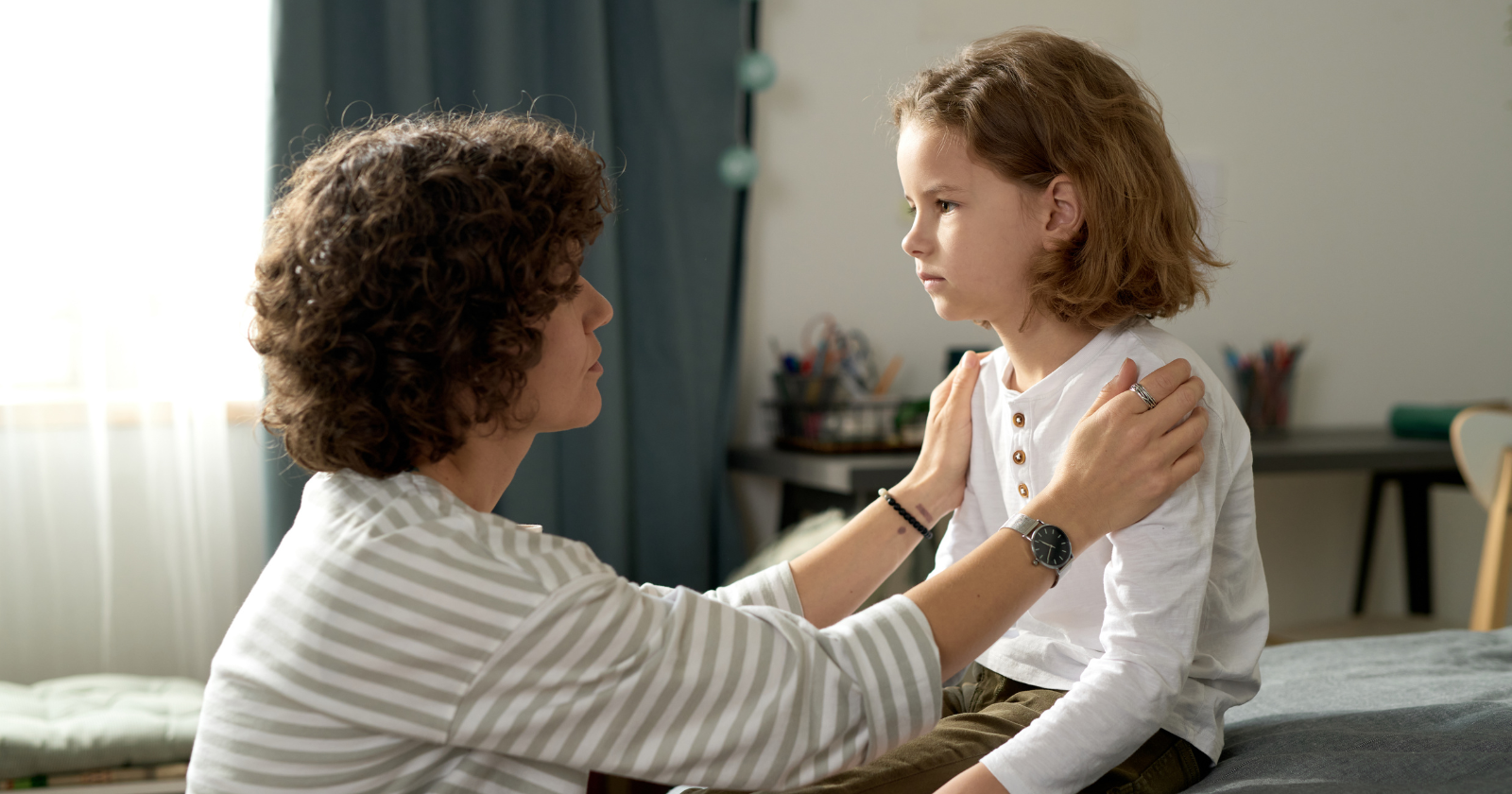Let’s get real for a minute: parenting is hard no matter which decade you did it in.
Most parents, especially those who raised kids in the ‘70s, ‘80s, or early ‘90s, were just doing the best they could with what they knew at the time.
Still, there’s a quiet, complicated truth many adult children of Baby Boomers carry—the sense that some of the things their parents saw as “good parenting” didn’t always land that way.
It’s not about blame. It’s about reflection. About looking back so we can do a little better moving forward.
Here are ten things Boomers often did as parents that their grown kids still think about today—sometimes with love, sometimes with lingering resentment, and often with both.
1) Dismissing emotions instead of naming them
How many of us grew up hearing “Stop crying or I’ll give you something to cry about”? Or “You’re fine!” when we clearly weren’t?
For many Boomer parents, emotional resilience was taught as emotional suppression. They believed toughness meant not showing feelings, but that approach often left kids unsure how to process them at all.
I still remember being told to “shake it off” after being left out at school, and even now, I sometimes catch myself rushing my own kids’ emotions instead of sitting with them.
As Vironika Tugaleva once said, “Emotions are not problems to be solved. They are signals to be interpreted.”
A lot of adult children are still learning that lesson for the first time.
2) Treating respect as a one-way street
Boomers grew up with “children should be seen and not heard.” Respect meant obedience, not mutual regard.
Related Stories from The Artful Parent
- Psychology says people who grew up in the 1960s and 70s developed these 9 resilience traits that younger generations lack
- People who stayed close to their parents into adulthood usually had childhoods with these 8 things in common
- 9 things experienced grandparents know about children that new parents haven’t figured out yet
The result? Many adults today still flinch at the idea of disagreeing with authority figures—or go to the other extreme, rebelling hard against anything that smells like control.
What we know now is that respect is reciprocal.
When I take the time to listen to Greta’s endless six-year-old logic (even when it’s circular and sprinkled with glitter metaphors), I’m showing her that her voice matters.
And one day, she’ll expect others to treat her the same way.
For a lot of us raised in the Boomer era, that validation came late—or not at all.
3) Confusing discipline with control
Spanking, grounding, shaming—these were standard parenting tools, not up for debate. If you talked back, the belt might come out, and no one called that “violence.”
- 7 signs you’ve found relationship balance when your blog never clocks out, according to psychology - The Blog Herald
- 8 things you should always check before trusting someone if you want to avoid betrayal - Global English Editing
- Psychology says boomers who never joined social media typically have these 8 distinct personality traits - Global English Editing
But what many now realize is that fear-based discipline didn’t build respect—it built resentment and distance.
When I talk to friends my age, almost everyone has a story about being punished not for what they did, but for how it made their parents look.
Discipline done right teaches accountability. Discipline done wrong teaches fear. And fear doesn’t turn into respect—it turns into silence.
4) Equating love with provision
Many Boomer parents were incredible providers. They worked hard, bought homes, paid bills, and made sure we had food on the table. But emotional availability? That was optional.
They showed love through sacrifice, not softness. But kids don’t just need parents who provide; they need parents who connect.
Some of us are still learning how to interpret love that isn’t transactional—how to believe we don’t need to earn it by achieving, producing, or pleasing.
Boomer parents carried their own heavy ones—and sometimes, they didn’t realize they were passing them along.
5) Avoiding difficult conversations

Let’s be honest—Boomers didn’t do “the talk.” Or any talk, really.
Sex, consent, therapy, mental health, grief, money—most of it was off-limits or shrouded in euphemisms. Kids were left to figure things out from TV, friends, or (eventually) the internet.
I’ve had conversations with friends who only discovered as adults that a “family friend” who disappeared suddenly had actually been part of a major family conflict. Or that “Uncle Jim’s long roommate” was his partner.
When families skip hard conversations, they don’t actually avoid pain—they just postpone it.
Now, as parents, we’re trying to model transparency and honesty—even when it’s awkward—because secrecy breeds shame.
6) Valuing conformity over individuality
If you were a Boomer kid, “fitting in” wasn’t just encouraged—it was survival. You didn’t question authority, challenge gender roles, or choose art over accounting.
But many adult children now quietly mourn the parts of themselves they hid to please their parents.
I’ve heard people say things like, “My mom still doesn’t know I majored in English instead of business,” or “I wish my dad had cared more about my happiness than my résumé.”
Our generation of parents tends to praise uniqueness—sometimes over-correcting in the other direction—but at least we’re learning that belonging shouldn’t require becoming someone else.
7) Putting image over authenticity
Boomer parents were experts in appearances. The lawn was mowed, the kids were well-behaved, and everyone smiled for church or the annual Sears photo.
But inside many homes, there was tension, unspoken conflict, and parents who stayed together “for the kids.”
It’s easy to see why they did it—society rewarded presentation. But that image-first mindset often left kids growing up with the sense that being “fine” mattered more than being real.
Now, authenticity is having its moment, and many adults are finally unlearning the reflex to say “I’m okay” when they’re not.
8) Treating therapy as taboo
For Boomers, therapy was either for “crazy people” or celebrities on talk shows. You kept family matters private and solved your own problems.
This mindset made it harder for their children to seek help when anxiety, trauma, or depression surfaced later.
I can’t count how many friends have said some version of, “My parents still think therapy is a waste of money.”
But here’s the truth: healing is never a waste. We now know that therapy isn’t indulgent—it’s a form of maintenance.
Even the American Psychological Association confirms that breaking intergenerational silence around mental health leads to better emotional outcomes for both parents and children.
9) Expecting gratitude instead of offering repair
Boomers often raised kids to be grateful—sometimes to the point of guilt.
If you expressed frustration or sadness, you might hear, “Do you know how hard I work for you?” or “You have no idea how lucky you are.”
Gratitude is healthy. Guilt isn’t. Many adult children still struggle with the idea that they can love their parents deeply and acknowledge the ways they were hurt.
When I think about my own parenting, I try to remember: gratitude should come from joy, not obligation.
If my kids tell me one day that I hurt them, I want to have the humility to say, “I believe you. Let’s talk about it.”
That’s repair. And it’s something many of us never saw modeled.
10) Believing parenting ends at eighteen
Finally, there’s this: many Boomers believed their job as parents was over once their kids turned eighteen. College, work, marriage—those were the markers of independence.
But emotional parenting doesn’t end with high school. It just changes shape.
Some of the deepest resentment adult children feel isn’t about what their parents did when they were young—it’s about what they stopped doing too soon.
The calls that never came. The distance that grew quietly but steadily.
I think about this a lot when Lukas and I plan our weekends. Yes, our kids will grow up, but they’ll always need to know we’re there—steady, curious, still showing up.
A gentle reflection
If any of this hits close to home, that’s okay. None of it means Boomer parents failed.
They were parenting in a world that didn’t have the language we have now for emotional intelligence, trauma, or self-awareness.
But it does mean we have an opportunity—to break cycles, to heal old wounds, and to give our kids what we sometimes needed ourselves.
Our generation can blend the best of both worlds: the structure and work ethic our parents taught us, with the empathy and openness we’ve learned the hard way.
At the end of the day, we’re all just trying to do better with what we’ve got.
And maybe, if we keep talking about it honestly, our own kids won’t have quite as long a list of quiet resentments someday.



